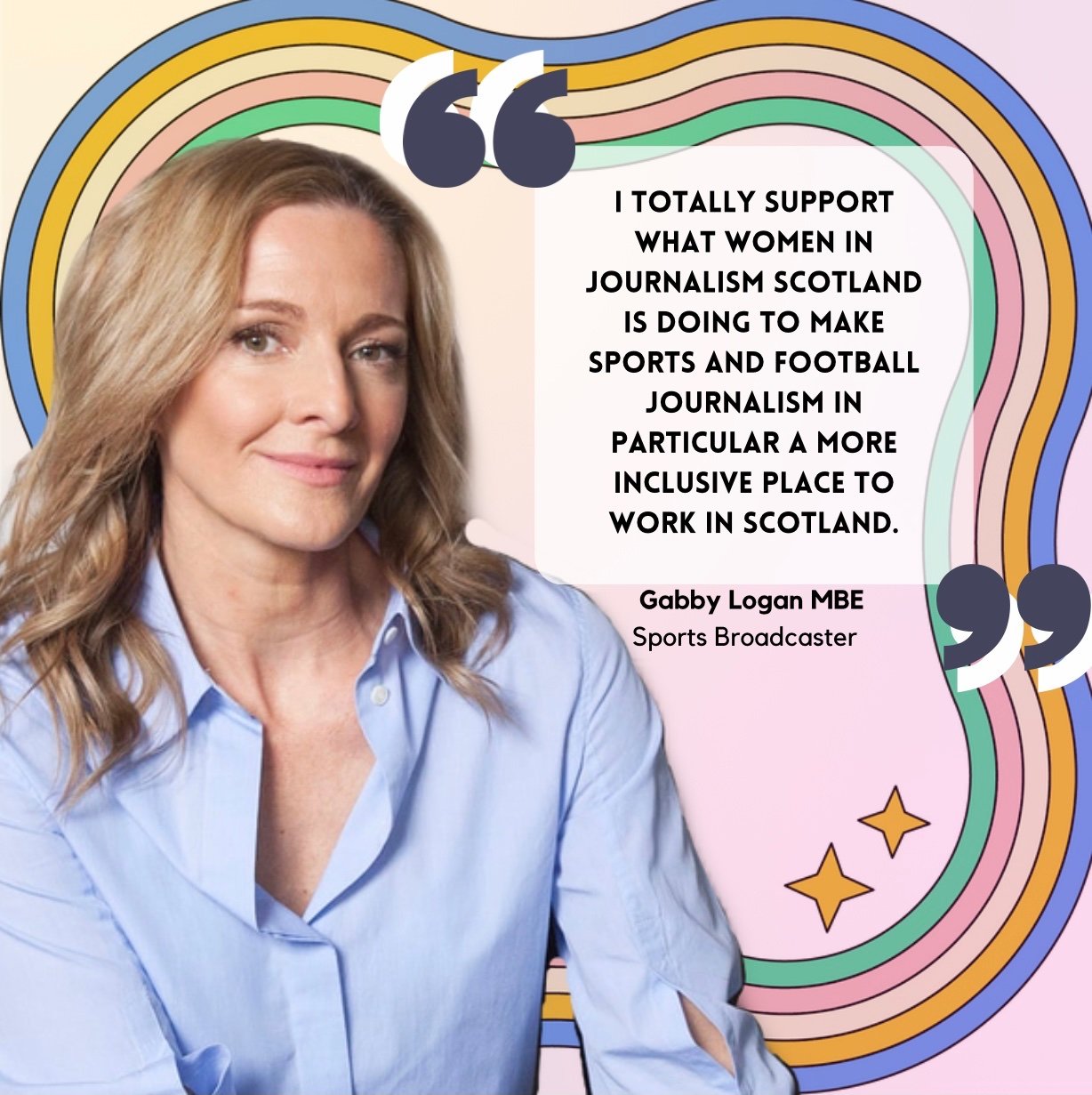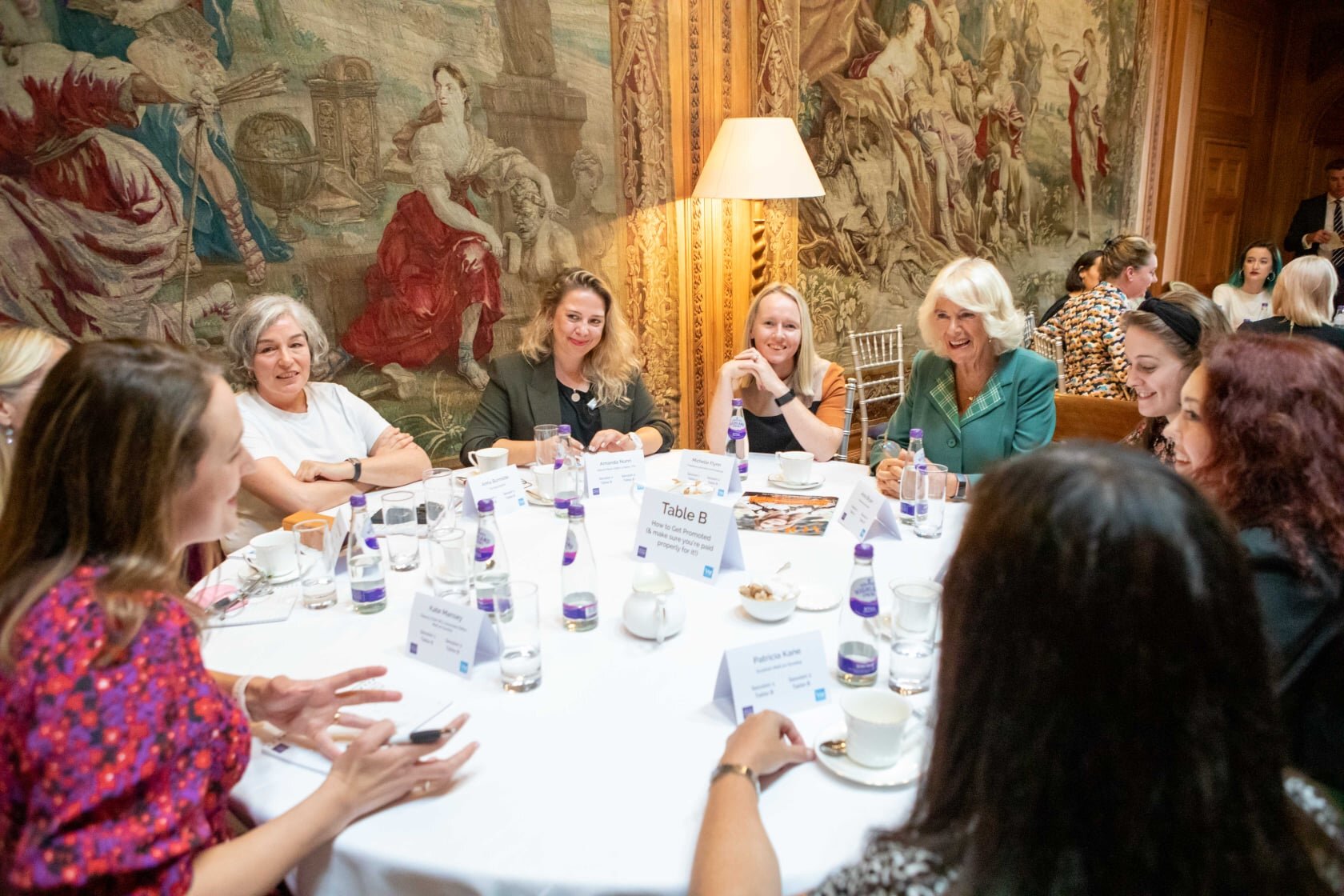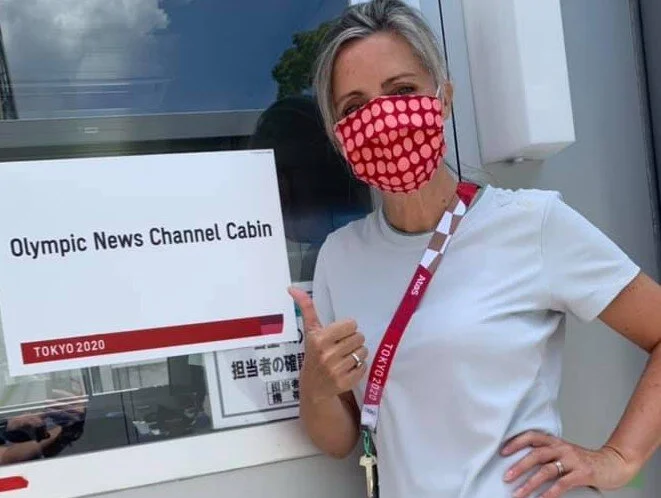Last year, Women in Journalism Scotland launched its inaugural mentoring scheme to help nurture the talents of early and mid-career journalists.
Over the past 12 months our mentors have helped their mentees bag national bylines, build contacts and grow their confidence.
In fact, the scheme proved so successful we’ve decided to expand it for 2022. In our second intake, 18 influential women journalists have agreed to share their knowledge and experience with the next generation.
Their names are among the most recognisable in Scottish and UK media, spanning print, broadcast, digital, radio and photojournalism.
Our 2022 mentors
Laura Kuenssberg has been the BBC's political editor since 2015, when she became the first woman, and youngest journalist to take on the role; leading the corporation's political coverage. She works across a wide range of BBC programmes; in particular, the 6 and 10 o Clock news and the Today programme.
Chitra Ramaswamy is a journalist and author. Her first book, Expecting: The Inner Life of Pregnancy, published by Saraband in April 2016, won the Saltire First Book of the Year Award and was shortlisted for the Polari Prize. She writes mainly for The Guardian, is the restaurant critic for The Times (Scottish edition), a columnist for the National Trust for Scotland, and broadcasts for BBC Radio Scotland.
Catherine Salmond is editor of Scotland on Sunday. She has worked in the news industry for 16 years, across digital and print. Her previous roles include live editor (The Scotsman) and assistant news editor (Edinburgh Evening News). Her route into journalism was through local weeklies, with posts in Dumfries and Galloway and Fife.
In Susan Egelstaff's previous life she was an international badminton player but after retiring from sport following the London 2012 Olympic Games, she became involved in journalism. She's been a writer and columnist for The Herald for ten years, covering primarily Olympic sports, and is also a regular contributor on BBC Radio Scotland.
Nicki McCourt was lucky enough to be offered a two-week placement with STV News after graduating from Napier University in 1992. She left eight years later. The subsequent decade was spent as a director with the Australian Broadcasting Corporation. She’s since returned to Scotland and to STV News as head of news-gathering and planning with responsibility for a team of reporters and camera operators.
Moira Gordon is a sports writer for The Scotsman, Scotland on Sunday and Edinburgh Evening News.
Jan Patience has been a journalist for over 30 years. After spending 15 years writing about visual art for The Herald, she is now art critic for The Sunday Post. She co-wrote a biography about the artist George Wyllie in 2016. In 2020, she co-founded Eardley 100, set up to mark the centenary of Anglo-Scottish painter Joan Eardley.
Eve Livingston is a freelance social affairs journalist. She has written for The Guardian, The Independent and VICE among many others and has appeared on TV and radio including BBC Woman's Hour and ITV News. In 2018 she was one of Young Women Scotland's 30 under 30, and in 2019 she was shortlisted for an Orwell Prize and Amnesty Media Award.
Gabriella Bennett is editor of Alba, the lifestyle section of The Times Scotland, where she writes a weekly column, and another for the Sunday Times Home. She was named travel writer of the year at the 2021 Scottish Press Awards and regional property journalist of the year at the 2021 UK Property Press Awards. She is also a best-selling author.
Sarah Gillespie got her start in journalism as an editorial assistant at a Scottish wedding magazine in 2013. She then worked as a features writer, online editor, and digital content manager. In 2020, she changed focus in the industry to become a lecturer in Journalism, Media & Communication, and Professional Writing Skills at City of Glasgow College.
Catriona MacPhee is a senior journalist with the BBC working on Question Time and Debate Night. She previously worked for STV News managing the Dundee newsroom. Prior to working in broadcast news Catriona was in print journalism for nearly a decade, cutting her teeth as a cub reporter at The Oban Times then as a roving Highland reporter at The Press and Journal.
Anna Burnside has worked at the Gorgie-Dalry Gazette, the Sunday Times and everything in between. She has been a reporter, a sub editor, a section editor and an editor. Over a couple of stints as a freelance she had bylines in national papers, trade papers and women's magazines. She is currently a feature writer at the Daily Record. She also appears on TV and radio and chairs live events.
Shona Gossip is the live news editor at the Press and Journal and Evening Express in Aberdeen. She started out at the P&J as a trainee and has covered more than a decade of the north of Scotland's biggest stories. She enjoys working with the trainees within the newsroom and is looking forward to being part of the WiJS mentoring scheme.
Kathryn Samson has been STV’s Westminster correspondent since 2019. She presents political coverage on STV News at Six, which is Scotland’s most watched news programme, and on Scotland Tonight. She’s covered all the major political events of the last decade, including the Scottish independence referendum, Brexit and the COVID-19 pandemic.
Elaine Livingstone is a freelance photographer based in Glasgow working on a variety of photographic assignments for a wide range of clients including national press, magazines, publishers, institutes, and organisations. Elaine’s photography career began in journalism; she is the former picture-editor of the award-winning Sunday Herald newspaper and The Herald magazine.
Talat Yaqoob is a consultant, a Fellow of the Royal Society of Edinburgh, and a member of the First Minister’s Advisory Council on Woman and Girls. Her experience spans education, women’s rights, anti-racism, workplace equality and inclusion, and political/civic participation. She is also a commentator, appears regularly on BBC Scotland’s Seven Days programme and has written for several publications. Talat is the co-founder of Women 50:50 and Pass the Mic, the national project to amplify women of colour’s expertise in Scotland’s media.
Christine Lavelle is the Scottish political editor of The Scottish Sun, where she has worked for over eight years covering news, politics and features. She previously spent two years at PA Scotland, and started her career at Deadline news agency in Edinburgh after graduating from Glasgow Caledonian University with a Masters in Multimedia Journalism.
Natasha Radmehr is a freelance journalist who writes features and op-eds for publications including The Times, The Sunday Post, The Herald, Homes & Interiors Scotland and Platinum. She has worked in Scottish media for 10 years, and formerly edited a leading wedding magazine.
Amy Irons is a Scottish TV and radio presenter who presents across sport, news and entertainment. Amy has worked on some of the biggest programmes in recent years including BBC One’s Hogmanay and Sports Personality of the Year. On screen she presents The Adventure show, The Edit, sport on The Nine and Sportscene. In radio Amy has hosted the Capital breakfast show as well as Off the Ball and BBC Five Live’s breakfast show.
Alison Conroy is a digital journalist with Sky Sports News in Scotland. She made the switch after 10 years working as a sports reporter then sports editor at Radio Clyde.
Maggie Ritchie is a freelance features and news writer, columnist, and award-winning author. Her 33 years in the media include seven at the Daily Record.
How to apply
To apply to have your media career shaped by this opportunity, fill in the below application form by December 13 2021.
Apply here.
Who can apply?
Eighteen early-to-mid career women journalists working in Scotland will be chosen to take part in a year-long programme, which will include at least an hour a month of their mentor’s time, most likely on Zoom. WiJ Scotland defines a mid career journalist as someone who feels they still have space to grow in their career and has specific goals they feel a mentor would help with.
One of our goals this year is to boost numbers of women of colour journalists. We welcome applications from women of colour student journalists.
Applicants must be a member of Women in Journalism Scotland. If you are not yet a member of Women in Journalism Scotland, join here.
Why mentoring?
We believe mentoring has the ability to change the future of journalism. That future features a more confident, diverse workforce, a greater prevalence of female voices and more women in senior positions.
Speaking about the scheme, Women in Journalism Scotland co-chair, Gabriella Bennett, said:
"By expanding our mentoring pool we hope to support more up-and-coming women journalists, who, evidence shows, will face discrimination in terms of pay and promotions during their careers.
"We were thrilled to hear of the success stories from last year's pairings and are delighted so many industry-leading mentors are willing to take part in 2022.”
How is the mentoring scheme judged?
Applicants will be selected by a panel led by the WiJ Scotland co-chairs. The panel will study all the answers to the questions posed in each application and base its final decision on the journalists proving how much they would benefit from the programme. An additional factor will be which applicant best fits the skills and experience of the 18 mentors.
When will I hear back?
We aim to contact all applicants by the end of December. Successful applicants will then be invited to an introductory workshop in January.





























